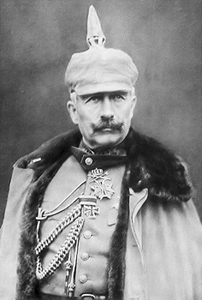The German government complained that Wilson’s Fourteen Points had largely been ignored – with the exception of Wilson’s proposal to form a League of Nations. They argued that, having not been consulted, the terms were nothing less than a dictate. Ultimately, however, the German government was too weak to do anything but add its signature, which they did, on 28 June 1919, exactly five years after the assassination of Archduke Franz Ferdinand.
As a result of the treaty, Germany lost 13 per cent of its territory, all its colonies, the Rhineland was to be de-militarized, its army limited to a token 100,000 men and its navy to 15,000. The treaty declared Germany and its allies responsible for all ‘loss and damage’ caused during the war, for which it would have to pay reparations. The amount, announced two years later, was set at 132 billion marks (the equivalent today of about $440 billion or £210 billion). But it was Article 231, the ‘War Guilt Clause’, that caused the German public the greatest humiliation – forced into admitting that the whole conflict had been the fault of Germany. Foch said, ‘This isn’t a peace. It’s a ceasefire for twenty years’.
The War to End War?
The Treaty of Versailles, as well as causing deep resentment in Germany, satisfied none of the Allies. The British, who wanted to see Germany punished but not destroyed, felt the treaty too harsh. The French – having borne the brunt of the conflict – were determined to see Germany destroyed and thought it too weak. Within six months, Clemenceau, who became a scapegoat for France’s disappointment, was voted out of office. Wilson returned to the US to find a country increasingly isolationist in its outlook. The Senate neither ratified the Treaty or joined the League of Nations.
Germans throughout the country, rounded on the politicians that had signed the Treaty. The war had been lost, not by the German army, they claimed, but the politicians – the government had ‘stabbed the nation in the back’. After all, not since 1914 had a single foreign soldier stepped on German soil. H. G. Wells had coined the phrase ‘the war to end war’, used also by Wilson, but Lloyd George was more accurate when, mockingly, he said, ‘This war, like the next war, is a war to end war’.
The Weimar Republic came into being in February 1919, but the humiliation of defeat, the perceived treachery of Germany, and social and political discontent remained rampant. One ex-corporal spoke for many when he summed up the shame of Germany’s defeat. On the day of the Armistice, the soldier had been in a hospital recovering from a gas attack. He described how he sobbed into his pillow, blaming the ‘gang of wretched criminals’ that had betrayed the fatherland. ‘Hatred grew in me,’ he wrote, ‘hatred for those responsible for this deed’. His name was Adolf Hitler.
Appendix 1: Key People
The Three Kings
King George V of Britain, Kaiser Wilhelm II of Germany, and Tsar Nicholas II of Russia (Georgie, Willy and Nicky) were all cousins. George and Wilhelm were both grandsons of Queen Victoria and Nicholas’ wife, the Empress Alexandra, was her granddaughter. They met, as a threesome, only twice. All three were considered feckless.
Kaiser Wilhelm II
Arrogant, extremely vain, and always seeking praise, Wilhelm II enjoyed a life of frivolity. His former chancellor, Otto von Bismarck, once remarked that the Kaiser would have liked every day to be his birthday. Much to Wilhelm’s delight, Queen Victoria made her grandson an honorary admiral of the Royal Navy for which, he said, he would always take an interest in Britain’s fleet as if it was his own. Born with a paralyzed left arm, considerably shorter than the right, Wilhelm needed help with eating and dressing throughout his life, and went to great lengths to hide his disability.

Kaiser Wilhelm II, c. 1918
A lover of all things military and a collector of uniforms (he owned 600, many he designed himself), Wilhelm’s knowledge of military matters was little more than that of an overenthusiastic schoolchild.
1 comment